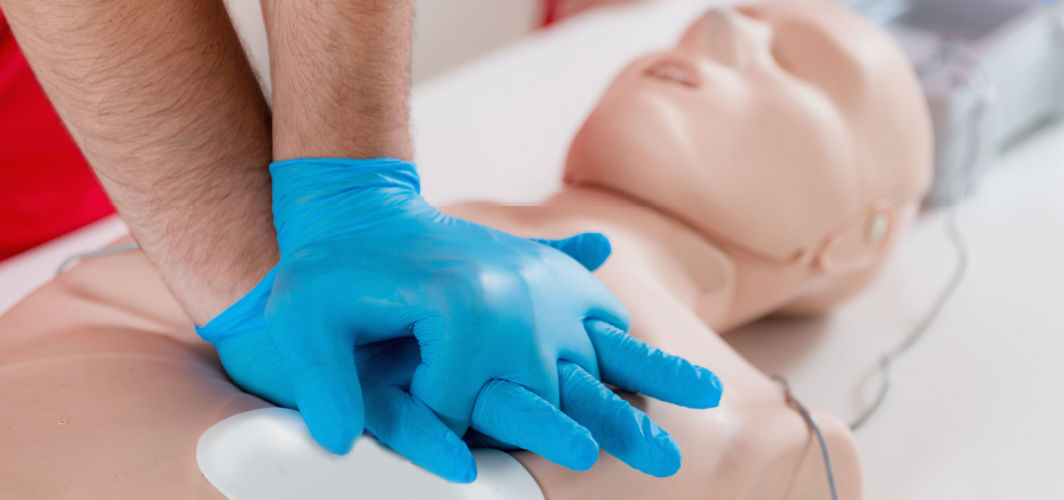Heart Conditions
What Does Your Heart Rate Tell You?
5 min read
By Apollo 24/7, Published on - 19 November 2020, Updated on - 02 June 2023
Share this article
1
34 likes

What is heart rate?
Resting heart rate
Factors that affect heart rate
- Air temperature: The heart rate increases when temperatures and humidity soars.
- Body position: The pulse momentarily increases for the first 15 to 20 seconds as you stand up after sitting or lying for a while.
- Emotions: Stressed, anxious and other extreme emotions can raise the pulse rate.
- Body size: Body size usually does not have any major effect on pulse rate. But for very obese people, the resting pulse rate is higher than normal, though usually not more than 100 bmp.
- Medication use: Medications that impact adrenaline (beta-blockers) can slow the pulse rate. On the other hand, a high dosage of thyroid medication can raise it.
How to check heart rate?
- Place the tips of three fingers - index, second and third finger on the palm side of the wrist below the thumb base.
- Press the fingers lightly until the blood flow beneath the fingers is felt. One may need to move the fingers slightly up and down until the pulse is felt.
- Count the heartbeat for 10 seconds. Multiply the number of heartbeats by 6 to obtain the heart rate (pulse) per minute.
Know your target heart rate during exercise
|
Age |
Target HR Zone 50-85% |
Average Maximum Heart Rate, 100% |
|
20 years |
100-170 bpm |
200 bpm |
|
30 years |
95-162 bpm |
190 bpm |
|
35 years |
93-157 bpm |
185 bpm |
|
40 years |
90-153 bpm |
180 bpm |
|
45 years |
88-149 bpm |
175 bpm |
|
50 years |
85-145 bpm |
170 bpm |
|
55 years |
83-140 bpm |
165 bpm |
|
60 years |
80-136 bpm |
160 bpm |
|
65 years |
78-132 bpm |
155 bpm |
|
70 years |
75-128 bpm |
150 bpm |
Conditions associated with chronically abnormal heart rate
Slow Heart Rate
- Underactive thyroid gland
- Hyperkalemia (high potassium levels in the blood)
- Infections such as typhoid fever or Lyme disease
- Heart conditions such as sick sinus syndrome
- Heart attack
Fast Heart Rate
- Fever, infection or inflammation
- Hypokalemia (low levels of potassium in the blood)
- Overactive thyroid gland
- Asthma or other respiratory problems
- Anaemia
- Side effects of some medications
- Cardiovascular conditions such as atrial fibrillation, cardiomyopathy, or ventricular tachycardia.
Heart rate tracking devices: Are they useful?
Conclusion
Heart Conditions
Leave Comment
Recommended for you

Heart Conditions
How Does Heart Transplant Surgery Work?
Generally a heart transplant surgery is recommended for patients who are suffering from end-stage heart ailments such as heart failure. The transplant surgery works by replacing a diseased heart with a healthy one, which increases the patient's longevity.

Heart Conditions
7 Signs Of Heart Disease That Appear On The Skin
Heart disease is not a disorder that occurs suddenly. It tends to build itself over months and years. During this time your skin might show signs and symptoms of an underlying heart condition. You mustn't take these signals lightly and seek immediate medical care.

Heart Conditions
How To Perform CPR? Here’s All You Need To Know
CPR is an emergency technique that can help save lives in cases of cardiac arrest. Keep reading to find out more about how you can make yourself useful when a situation does arise.
Subscribe
Sign up for our free Health Library Daily Newsletter
Get doctor-approved health tips, news, and more.
Visual Stories

Easy Cardio Exercises to Keep Your Heart Healthy
Tap to continue exploring
Recommended for you

Heart Conditions
How Does Heart Transplant Surgery Work?
Generally a heart transplant surgery is recommended for patients who are suffering from end-stage heart ailments such as heart failure. The transplant surgery works by replacing a diseased heart with a healthy one, which increases the patient's longevity.

Heart Conditions
7 Signs Of Heart Disease That Appear On The Skin
Heart disease is not a disorder that occurs suddenly. It tends to build itself over months and years. During this time your skin might show signs and symptoms of an underlying heart condition. You mustn't take these signals lightly and seek immediate medical care.

Heart Conditions
How To Perform CPR? Here’s All You Need To Know
CPR is an emergency technique that can help save lives in cases of cardiac arrest. Keep reading to find out more about how you can make yourself useful when a situation does arise.